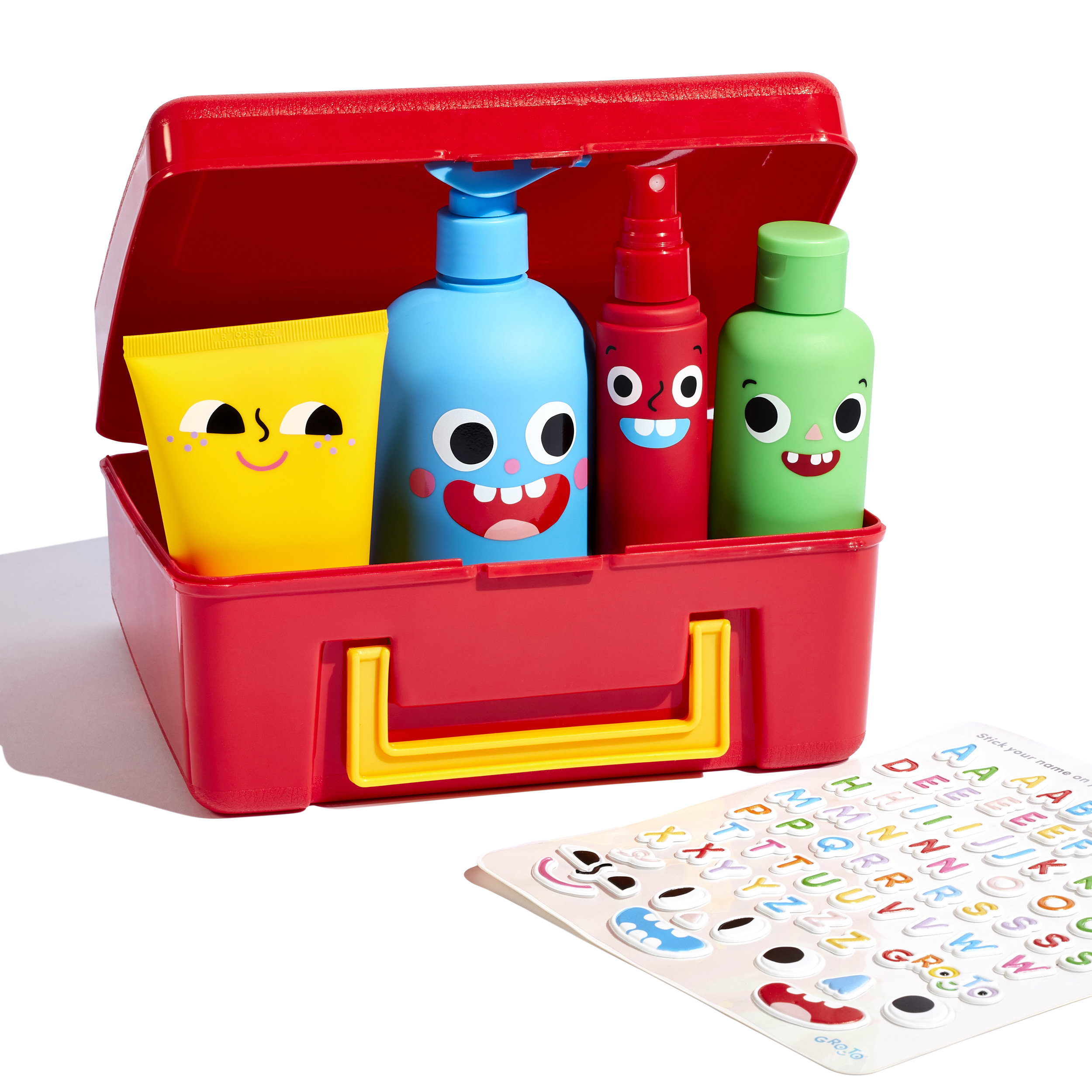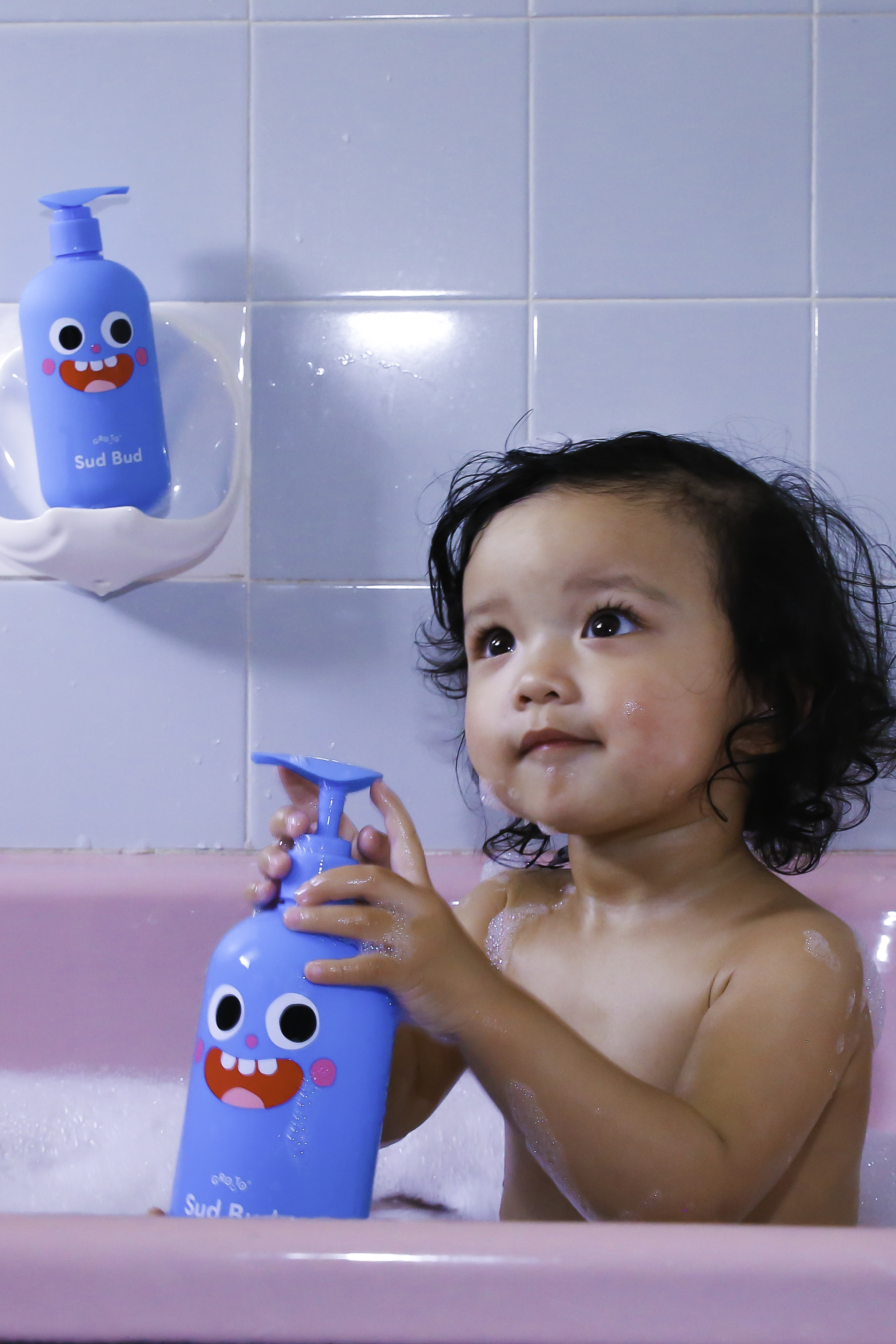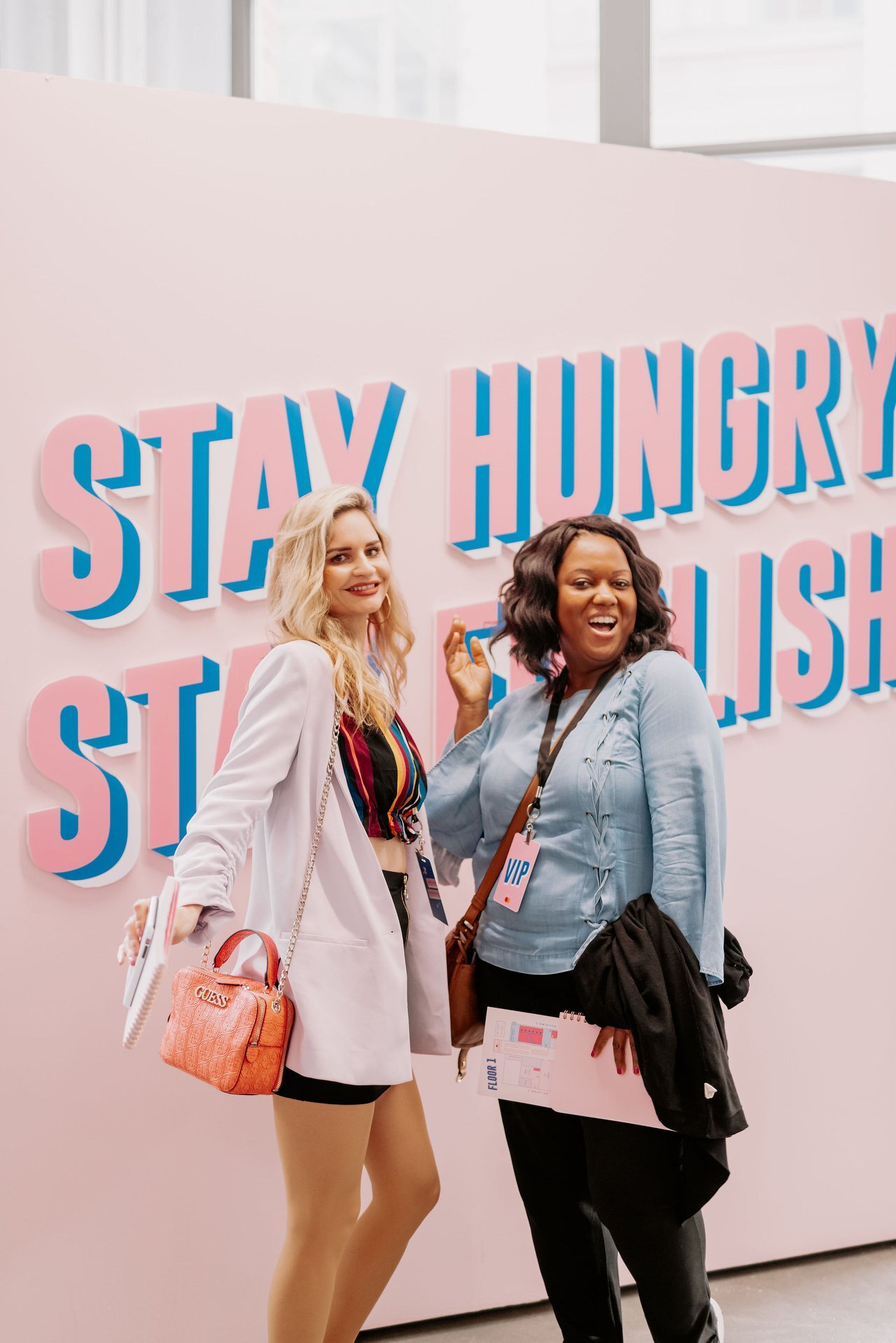We know how daunting it can be to start a new business, especially if you’re disrupting an industry or creating an entirely new one. When there is no path to follow, the biggest question is, where do I start? There is so much to do but before you get ahead of yourself, let’s start at the beginning. To kickstart the process (and ease some of those first-time founder nerves) we’re asking successful entrepreneurs to share their story in our new series, From Scratch. But this isn’t your typical day in the life. We’re getting down to the nitty gritty from writing a business plan (or not) to sourcing manufacturers and how much they pay themselves, we’re not holding back. If you want to know how to start a business, you’ve come to the right place.
“Don’t get caught up in the keeping-up-with game. Newness is nice, but not at the cost of your product quality or company values.”
—Zoë Foster Blake, Founder and CCO, Go-To Skincare
After years of working as a beauty editor and author in Australia, Zoë Foster Blake couldn’t understand why skincare had to be so serious. Looking after your skin should be fun, right? Blake certainly thinks so and she has built a brand (and soon-to-be global empire) that’s proving her instincts to be right.
With a mission to remove the stress and intimidation out of skin health, Blake created the cruelty-free and carbon-neutral brand, Go-To Skincare. The brand has been so successful, she recently expanded the line to include a children’s range called Gro-To and a men’s line called Bro-To (yep, her humor also made it into these collections too).
In this segment of our popular series From Scratch, Blake proves that business doesn’t have to be boring; in fact, Blake’s answers should motivate us all to never settle for anything less than fulfillment and joy from our careers. Don’t believe it’s possible? Read on and prepare to be inspired.
C&C: Did you write a business plan?
Zoe Foster Blake: “Nope. I thought to myself, ‘Shit, you really need to get that business plan together’, for about two years, but I was so busy doing the business, that the plan for it fell off the radar. It became a bit of an obnoxious in-joke, the bigger we grew: ‘Better get started on that biz plan, guys!’ Etc etc. I think in truth the reason I didn’t begin with one is because I have zero business training. It didn’t occur to me; I just started writing a brief for my dream moisturizer.
“I’m not sure I’d advise others starting out to skip the business plan, but we got by without one. We have a plan now, by way of a strategic document, which is incredibly meaningful and forms the core of everything we do, but I don’t think we could have had one without a few years experience, and a good sense of who we are, and what we stand for.”
How did you come up with the name? What was the process like?
“It was organic. When I was brainstorming the initial five products, I’d explain the range to my formulator and friends by saying, ‘I want these to be women’s go-to products, the ones they rely on, and trust, and travel with; I want this face cream to be her go-to face cream.’ I think if it hadn’t happened in that unconscious way, I would have really struggled. I don’t even know what to call my Spotify playlists, let alone the pressure of naming a brand that I want to be around for years.”
What were the immediate things you had to take care of to set up the business?
“Website domains, Twitter, Facebook, and Instagram handles, the trademark for the brand name but also the individual product names; all the basic stuff. I should say here that I wasn’t personally doing them. From the beginning, there were three other directors, each with specific skill sets: e-commerce and IT, formulations, and logistics and management. This allowed me to do what I needed in terms of product development, marketing, copy, branding, logos, design, artwork, media, packaging etc.”
“Hire people for their attitude, and their energy and passion. You can train technique and skills, but you can’t teach people to care. And care is my number one for any employee.”
What research did you do for the brand beforehand?
“I didn’t. I made what I felt was useful, what I knew worked, and what I felt the market was missing—a very simple, useful line of clean skincare essentials that made the customer feel confident, not confused. That said, I did know the market and the competitors because I spent years as a beauty editor, acting as both the guinea pig for, and the vessel between brands and products, and the public.
“I also published a book of beauty tips and tricks and had a beauty blog. Between those three projects, I had an enormous amount of feedback from women on what they liked, and didn’t like, or were confused by in skincare (all of it), as well as years of testing and reviewing every product under the sun. Ultimately I felt confident Go-To was catering to substantial need. That’s what drove me. I knew the gap was there.”
How did you find the manufacturer/production facility that you use? Did you have any bad experiences?
“My formulator was in charge of this, and he elected to work with a manufacturer he already worked with and could trust and had a solid relationship with. This was fine when we were small, and had a limited range, (and the manufacturers themselves were small!) but we’ve had to bring in several new third parties now, to cater to our production needs, and growth.
“There have been plenty of problems! Pumps that leak, lids that don’t fit, artwork mess-ups, formulation issues, ships with packaging running late because of typhoons and new products missing their fill date, etc etc. This is the stuff I let my team handle now; I am on an NTK (need-to-know) basis. But we have learned to always have at least two manufacturers for any product, (some products, like sheet masks or SPF, can only be manufactured and filled at a specific place, making it tricky) due to the inevitable, unforeseeable issues that come with natural skincare production.”
Did you self-fund the company? Did you raise seed money or initial investment money?
“I think the model is a bit different here in Australia. It’s not that common for start-ups to seek seed money or raise capital. Go-To was self-funded. I kicked off on my own in 2013 with three other shareholders, who I chose because they brought essential skills to the company, and I wanted them to have skin in the game, rather than hire them as contractors. We’re all very different, but we deeply respect each other and genuinely want to do the best by our company, brand, staff, and customers. We started the company with a moderate amount of capital, and fortunately, it took off right away.”
How much did you pay yourself? How did you know what to pay yourself?
“We didn’t begin paying ourselves for several years, and even then, it was a token amount, basically a board attendance remuneration. When we collectively agreed we were all working full-time or more on Go-To, we created roles and responsibilities and job titles, and looked at the market rate to decide what each role would pay, rather than base it on who we were, or what we’d done so far for the company.”
How big is your team now? What has the hiring process like?
“Go-To has over 30 employees with offices in Sydney and warehouses in Australia, New Zealand, and the US. I oversee and approve hires in marketing, customer service, and product areas, but my GM and department heads have autonomy in their departments. What I’ve learned is that beyond basic job requirements, hire people for their attitude, and their energy and passion. You can train technique and skills, but you can’t teach people to care. And care is my number one for any employee.”
““We make things, people buy them. That seems simple, but within it there is so much: the culture, the efficacy, the communication, the growth, the quality control, the innovation, the social impact, and for me personally, being the public face of a company that is now in several countries, and retailers, and talking to so many different people, all with different expectations. It’s a lot.””
What has been the biggest learning curve during the process of establishing a business?
“Getting used to the responsibility I have to my team, my customers, and the planet (has been the biggest learning curve). We make things, people buy them. That seems simple, but within it there is so much: the culture, the efficacy, the communication, the growth, the quality control, the innovation, the social impact, and for me personally, being the public face of a company that is now in several countries, and retailers, and talking to so many different people, all with different expectations. It’s a lot, on top of being a mother with very young children that I want to be with. But I feel it’s what I am meant to be doing right now.”
How did you get retailers to start stocking your product? Were you told no?
“We weren’t interested in retailers. I was resolute on staying D2C for as long as possible. Retailers approached us, from day one, but we had no desire or need to move into retail, financially or otherwise. We had a fierce, loyal, growing community and we were enjoying playing with them. Of course, I knew we’d do bricks and mortar one day, but it had to be when we were ready to broaden our reach, hit that next level.
“Sephora U.S. came to us in 2017 (we launched in 2014) and were keen to stock us in-store and online, which launched in 2018. By getting our products ready for retail in the U.S., we inadvertently got them ready for retail back here, and since I figured we would be in Australian retail eventually, we agreed to chats with Sephora AUS and Mecca, to see who would provide the best home for Go-To. We chose Mecca, and they have been incredible. As we hoped, being in their 100+ stores has opened us up to a whole new customer, one that was perhaps too scared to shop for skin care online, which I totally get.
Do you have a business coach or mentor?
“No, but my husband has been in business longer than I have, and he’s incredibly helpful. As we grow and scale, my business acumen required at board level has elevated, and I find myself deeper in governance and financials than I care to be (let me get back to making products and marketing them please), but it’s my baby, and as the founder I need to steer the ship, so I respect the process and ask for advice from industry professionals as needed, so that I always, always know what’s going on. I have a person in mind I am thinking of approaching to be a business mentor, but I know how busy he is, so I’m working up to it. I think meaningful mentors are incredibly useful, and try to help young women in business or writing as much as my time permits.”
How did you promote your company? How did you get people to know who you are and create buzz?
“No marketing training, but as a professional writer, and lover of copy and ideas, I relished the challenge. I had a profile in beauty before starting, because of my years working as a magazine beauty editor/my books (and I had a digital following because I’d been beauty blogging since 2006) so I optimistically hoped the trust I’d accrued over those years would at least get people curious enough to try the range (then the dazzling quality of products would obviously do the rest.)
What is one thing you didn’t do in the setup process, that ended up being crucial to the business and would advise others to do asap?
“It’s probably not as relevant in 2019 as 2013 when I was designing our products because, in this Instagram age, any brand launching intrinsically knows how critical the visual design of the product is, but try to think about five years down the track. Would you still be happy with this font? This color? This shape of the tube? If you’re D2C, will this product be able to compete aesthetically once you hit the shelves with brands that have been in retail for 20 years? It has to be a wedding-dress mentality. Make it timeless, and make sure you love it, and that it makes you proud.”
For those who haven’t started a business (or are about to) what advice do you have?
“Do what you want. I mean this in a literal sense: make or do a thing that you personally believe is missing from the world or market, but which you would like to exist, and which you believe other people will see value in.
“Also, don’t get caught up in the keeping-up-with game. Newness is nice, but not at the cost of your product quality or company values. Finally, honor your customer. They are trusting you with their money (and in our case, their face and their newborn baby’s skin! Gah!) so take that responsibility seriously.”
“Do what you want. I mean this in a literal sense: make or do a thing that you personally believe is missing from the world or market, but which you would like to exist, and which you believe other people will see value in.”
—Zoë Foster Blake, Founder and CCO, Go-To Skincare
For more founder interviews in the From Scratch series visit, createcultivate.com.













